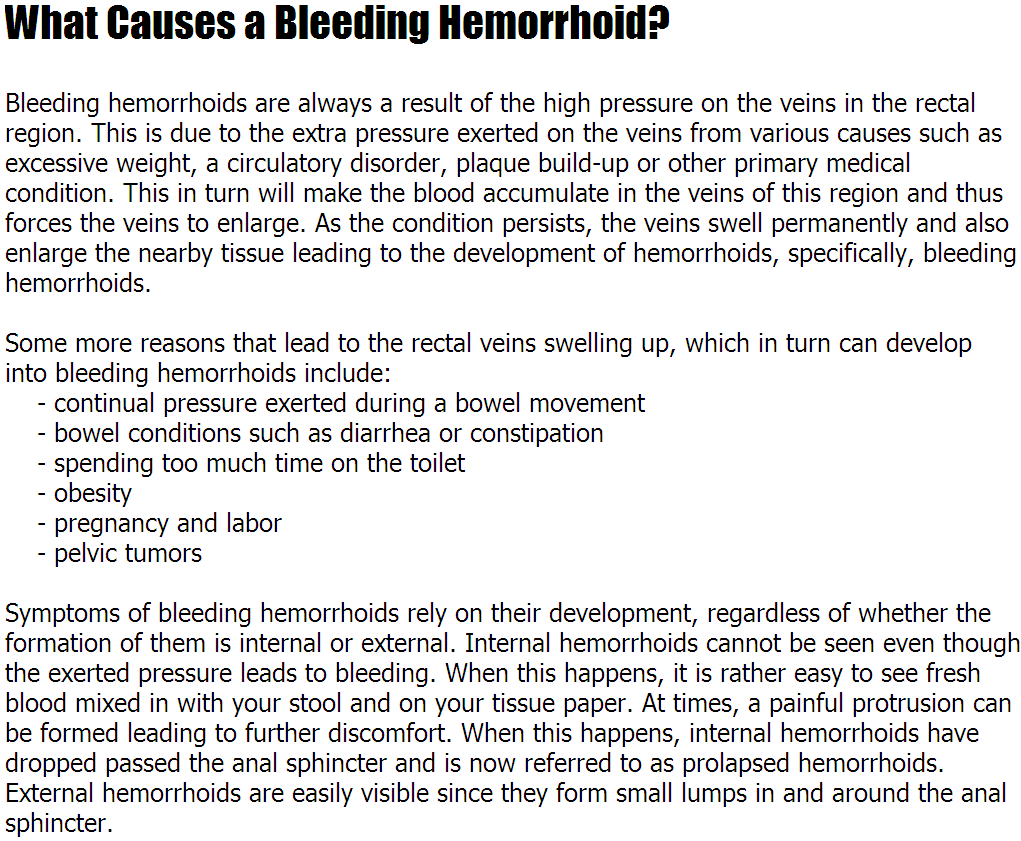

Understanding the causes behind painful hemorrhoid symptoms is the first step towards effective management and prevention. Hemorrhoids, those swollen veins in the anal area, can cause considerable discomfort and embarrassment. This thorough guide will delve into the various factors contributing to painful hemorrhoids, providing actionable strategies for relief and long-term well-being. We’ll explore the interplay of genetics, lifestyle, and dietary habits in the development of painful symptoms and equip you with the knowledge to make informed decisions about your health. We’ll also outline the varied types of hemorrhoids and how their symptoms vary, providing a roadmap for recognizing the specific discomfort you’re experiencing. This article will cover everything from dietary changes and lifestyle modifications to medical treatments for managing painful hemorrhoids. We’ll cover the topic in logical sections, starting with the meaning of hemorrhoids, moving on to causes, and finally discussing prevention strategies and when to consult a doctor.
meaning and Types of Hemorrhoids
What are Hemorrhoids?
Hemorrhoids are swollen veins in the anus and rectum. These veins can become inflamed, causing pain, itching, and bleeding. They are quite common, affecting millions of people worldwide, and can manifest in varied forms. Understanding the varied types is essential for effective management. While there are various types, the two main categories are external hemorrhoids (located outside the anus) and internal hemorrhoids (located inside the rectum). External hemorrhoids frequently cause pain and itching, often aggravated by bowel movements. Internal hemorrhoids can be asymptomatic or cause bleeding, particularly during bowel movements. Understanding the difference in location will be instrumental in seeking the right relief and care.
Dietary Factors and Hemorrhoids
The Link Between Diet and Painful Hemorrhoids
A diet deficient in fiber can contribute significantly to painful hemorrhoids. A high-fiber diet promotes softer stools, making bowel movements easier and less straining. This reduced straining minimizes the pressure on the anal veins, thus reducing the risk of hemorrhoid formation and discomfort. A lack of fiber can lead to constipation, and straining during bowel movements puts immense pressure on the veins, leading to inflammation and pain. Incorporating a diet rich in fruits, vegetables, and whole grains is essential to maintaining healthy digestion and preventing hemorrhoids.
The Importance of Hydration
A crucial factor often overlooked is proper hydration. Water helps to soften stools and facilitates easier bowel movements, decreasing the chances of straining. Dehydration, on the other hand, can lead to hard stools, making bowel movements difficult and painful. Thus, adequate hydration is a vital facet of preventing and alleviating hemorrhoid symptoms. Consider a daily intake of at least eight glasses of water to stay adequately hydrated and maintain healthy bowel movements.
Lifestyle Habits and Hemorrhoid Development
Prolonged Sitting and Hemorrhoids
Prolonged periods of sitting can boost the pressure on the veins in the anal area, potentially leading to hemorrhoid formation. Sitting in one position for extended hours can hinder proper blood circulation and contribute to discomfort. Regular movement and stretching can help maintain adequate blood flow to the lower body, reducing the risk of hemorrhoid development. Taking short breaks and incorporating physical activity into your daily routine can make a significant difference in preventing hemorrhoids.
Exercise and Hemorrhoid Prevention
Consistent exercise is essential for overall health and contributes to healthy bowel movements. Regular physical activity improves blood circulation, promotes healthy digestion, and helps maintain a healthy weight. A healthy weight can significantly reduce the risk of pressure on the anal area, thus lowering the chances of hemorrhoid development. Regular exercise routines, including walking, swimming, and cycling, help maintain the elasticity and integrity of the veins. These healthy habits can go a long way in preventing the development of hemorrhoids and promoting overall well-being.
Medical Interventions for Hemorrhoids
Treatment Options for Painful Hemorrhoids
Medical treatments are available to address painful hemorrhoids. Over-the-counter medications, such as creams and ointments, can offer relief from itching and pain. In severe cases, surgical interventions may be necessary. Consult a healthcare professional for the most appropriate treatment plan. Various procedures, such as rubber band ligation and surgical removal, may be considered to alleviate the symptoms and discomfort of hemorrhoids. These treatments can be effective, but their requirement depends on the severity of the case.
When to Seek Medical Attention
Recognizing the Need for Professional Consultation
It’s crucial to seek medical attention if you experience persistent or severe symptoms. This includes persistent pain, bleeding, or a visible lump in the anal area. A healthcare professional can accurately diagnose the cause and recommend the most appropriate treatment options. Early diagnosis and treatment will prevent further complications and assure quicker recovery.
What are the optimal home remedies for relieving hemorrhoid pain?
Home remedies can often alleviate hemorrhoid pain and discomfort. Increasing fiber intake through dietary changes and staying properly hydrated are crucial. Over-the-counter creams and ointments can also offer relief, but it’s always optimal to consult a healthcare professional for accurate diagnosis and effective treatment recommendations.
How can I prevent hemorrhoids from recurring?
Maintaining a healthy lifestyle plays a crucial function in preventing recurrent hemorrhoid issues. A balanced diet rich in fiber and adequate hydration are essential for easy bowel movements and reducing the risk of straining. Regular exercise and avoiding prolonged sitting can also significantly help. determineing and addressing underlying issues like chronic constipation is essential for prevention, and it’s crucial to consult a doctor if symptoms persist.
What are the varied types of hemorrhoid treatments?
varied treatment options are available for painful hemorrhoids, depending on the severity and type. Over-the-counter pain relievers, creams, and ointments can offer relief for milder symptoms. For more severe cases, surgical interventions, such as rubber band ligation or surgical removal, may be necessary. Consult a healthcare professional for the most appropriate treatment plan.
What is the relationship between constipation and hemorrhoids?
Constipation is a significant factor in hemorrhoid development. Straining during bowel movements due to constipation puts immense pressure on the veins in the anal area, increasing the risk of inflammation and hemorrhoid formation. This close link highlights the importance of maintaining regular bowel habits and a high-fiber diet to prevent constipation and associated hemorrhoid discomfort.
In conclusion, understanding the causes behind painful hemorrhoid symptoms is crucial for effective management and prevention. By addressing the underlying factors like straining during bowel movements, poor diet, and insufficient hydration, individuals can significantly reduce their risk of developing or experiencing painful hemorrhoids. Consulting a healthcare professional for diagnosis and personalized treatment recommendations is essential for optimal hemorrhoid care. For immediate relief and to prevent future occurrences, incorporate lifestyle changes such as increasing fiber intake, practicing regular bowel habits, and maintaining proper hydration. If symptoms persist or worsen, seek professional medical advice immediately.